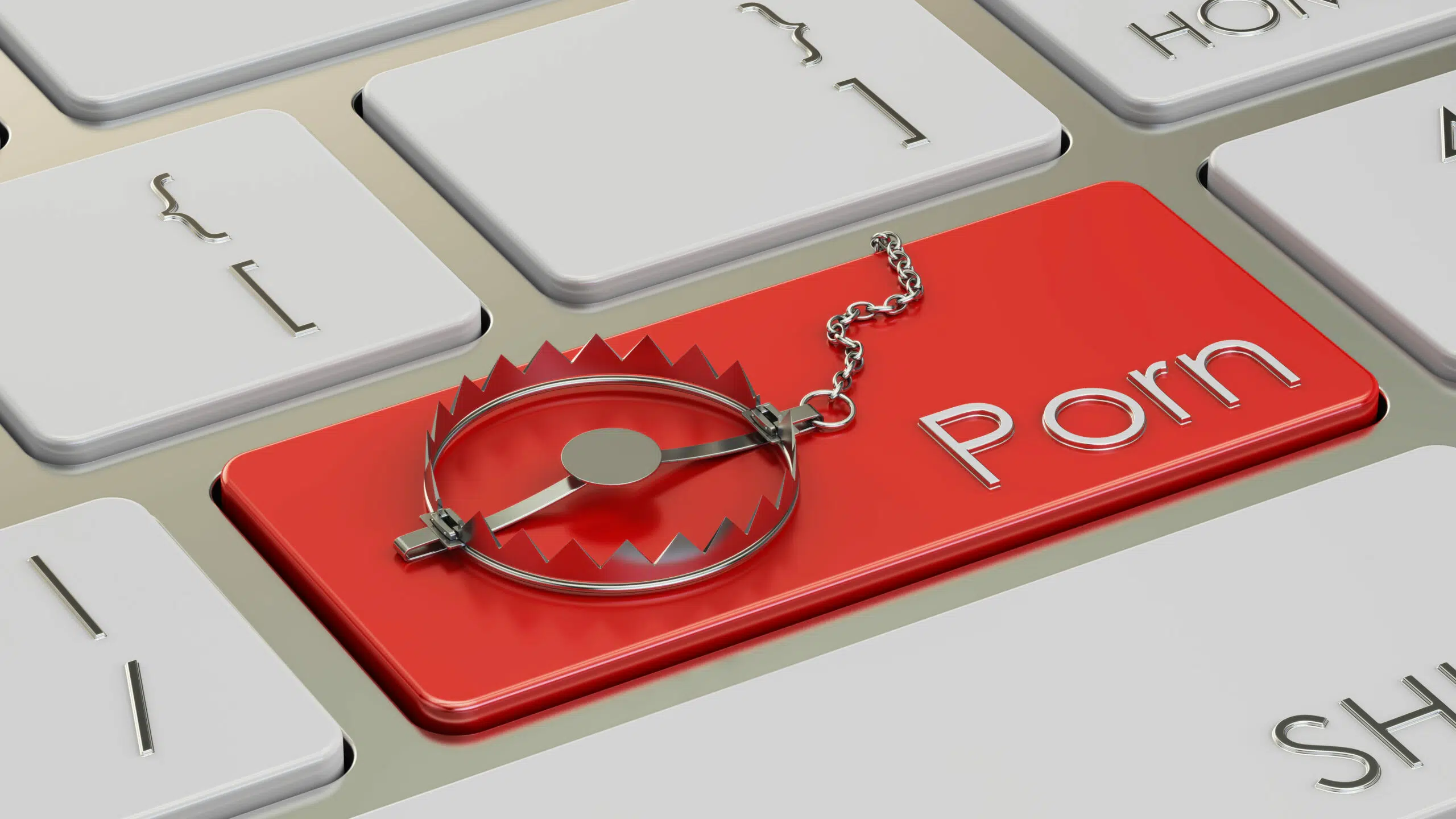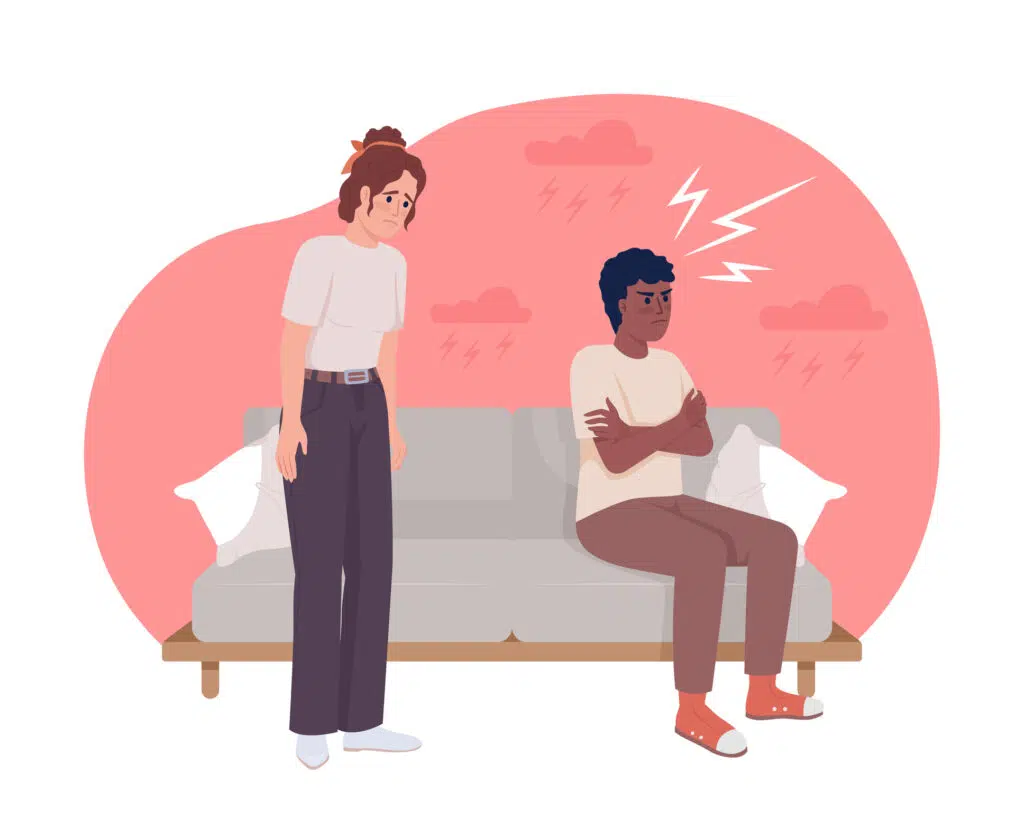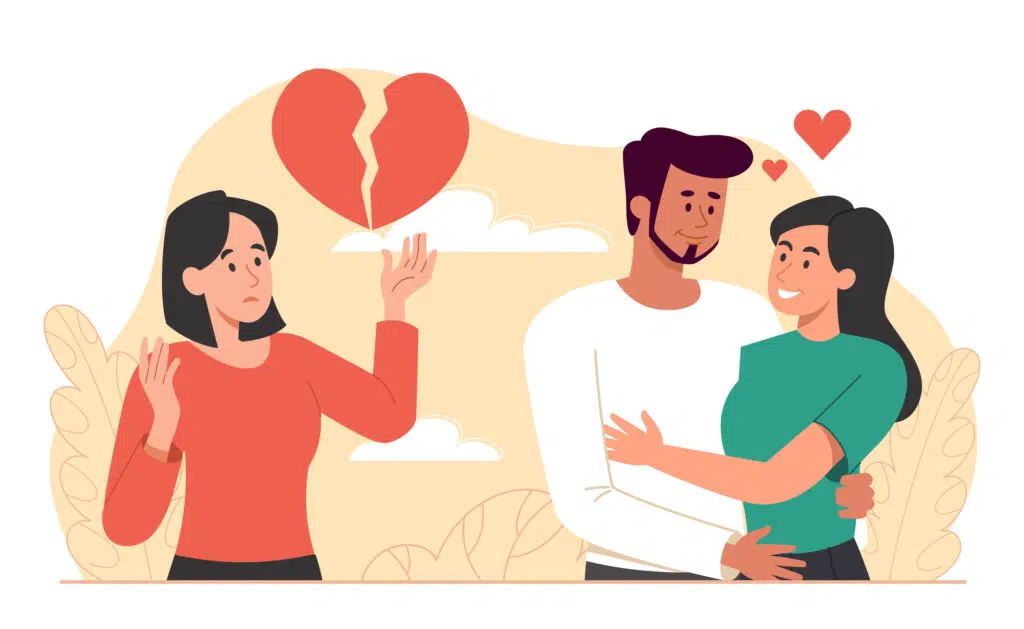Understanding and Overcoming Porn Addiction

In a world where instant gratification is just a click away, the silent epidemic of porn addiction is gaining recognition as a serious issue that can affect anyone, regardless of background or lifestyle. At Thriving Center of Psychology, we understand that overcoming porn addiction is not merely about willpower; it’s about understanding the complexities of human psychology, neurology, and the power of habit.
Porn addiction often lurks in the shadows of secrecy, but its effects can shine a stark light on the lives of those it touches, causing distress and disconnection. With this comprehensive guide, our aim is to illuminate the path to recovery, offering clarity and support to those who find themselves struggling with this condition. We believe in providing resources, insight, and professional guidance to help you or your loved ones take the necessary steps toward a healthier, more balanced life.
Our approach is rooted in compassion and informed by the latest research, giving you the tools and understanding needed to navigate the challenges of porn addiction. Whether you’re directly affected by this issue or seeking to support someone who is, this guide serves as a beacon, guiding you towards recovery and well-being.
Understanding Porn Addiction
What is Porn Addiction?
Porn addiction is a behavioral condition marked by the compulsive consumption of pornographic material. While engaging with pornography is a personal choice and can be a part of normal adult life, it crosses into addiction when it starts to interfere with daily functioning, responsibilities, and relationships. This form of addiction is not about the frequency of consumption but the dependency and compulsion it creates, leading to a loss of control over one’s actions.
Casual Use vs. Addiction
Casual use becomes addiction when pornography viewing is no longer a choice, but a necessity. For the casual user, porn is a part of life that does not overwhelm their ability to function in other areas. In contrast, those with an addiction may find that pornography takes precedence over work, social interactions, and intimate relationships, often accompanied by an inability to reduce consumption despite the desire to do so.
The Neuroscience Behind Behavioral Addiction
The Science of Addiction
At the core of porn addiction lies the brain’s reward system. Like with substance addictions, engaging with pornography stimulates the release of dopamine, a neurotransmitter linked to pleasure and reward. Over time, the brain’s wiring changes, developing a pattern of increased craving and decreased satisfaction, a phenomenon known as tolerance. This leads to the individual seeking out more porn or more intense forms of it, perpetuating the cycle of addiction.
Behavioral Addiction Classification
Porn addiction is classified as a behavioral addiction, alongside gambling, shopping, and video gaming. It shares similar patterns of compulsive behavior and negative impact on life quality. While it’s not officially recognized in diagnostic manuals like the DSM-5, the effects are real and can be devastating, lending to its increasing acknowledgment in the mental health community.
Understanding Leads to Empathy and Support
Understanding porn addiction is crucial for providing effective support. Recognizing that this is a complex condition influenced by various factors, rather than a simple lack of self-control, can foster empathy both for those struggling and their loved ones. It shifts the focus from blame to support, from judgment to aid, paving the way for recovery.
Recognizing Porn Addiction Symptoms
Identifying porn addiction signs is pivotal for seeking timely intervention. Here are the critical signs and symptoms:
Excessive Use and Preoccupation
A hallmark of addiction is the significant amount of time spent viewing pornography, often at the cost of sleep, hobbies, and responsibilities. The preoccupation with pornographic content might lead to a persistent urge to engage in this behavior despite attempts to stop.
Continued Use Despite Negative Consequences
Another clear sign of addiction is the inability to cease behavior despite facing negative repercussions, such as relationship issues, job performance decline, or financial problems.
Escalation and Tolerance
Individuals may find that over time, they need to consume more porn or seek more extreme forms to achieve the same level of satisfaction, indicating an increased tolerance — similar to substance addictions.
Withdrawal Symptoms
When attempting to cut back or stop using pornography, individuals might experience withdrawal symptoms, including moodiness, irritability, anxiety, or even depression.
Neglect of Other Activities
Porn addiction often leads to a noticeable decline in engagement with previously enjoyed activities and can result in a person neglecting their duties and responsibilities.
Secrecy and Isolation
As with many addictions, those affected by porn addiction may go to great lengths to conceal their behavior, leading to social withdrawal and isolation from friends and family.
Impact on Relationships
Addiction can result in a noticeable change in relationships, with individuals becoming more distant and less interested in intimate or social interactions, often leading to conflict or estrangement from partners and loved ones.
Early Recognition: Key to Effective Intervention
The early recognition of these signs is crucial. It allows for prompt intervention, which can mitigate the addiction’s negative impacts. Understanding these symptoms also helps in creating a supportive environment that encourages the affected individual to seek help.
Recognizing the signs and symptoms of porn addiction is crucial for those affected and their support networks. Early identification and understanding can lead to effective interventions and a better chance of recovery.
The Impact of Porn Addiction
The repercussions of porn addiction ripple through every aspect of life, from personal to societal levels. It’s not just the individual that suffers; the effects can permeate relationships, professional life, and overall health.
Psychological Effects
Psychologically, porn addiction often walks hand-in-hand with feelings of guilt, shame, and a distorted self-image. It can exacerbate or contribute to mental health conditions such as anxiety, depression, and stress. The secrecy that typically accompanies this addiction can lead to feelings of loneliness and isolation, further compounding psychological distress.
Relational Impact
On the relational front, porn addiction can erode the foundation of trust and intimacy that relationships are built upon. Partners of those with porn addiction may experience feelings of betrayal, inadequacy, or lowered self-esteem, potentially leading to the breakdown of relationships. It can also skew perceptions of healthy sexuality, leading to unrealistic expectations and dissatisfaction.
Societal Consequences
Societally, the widespread nature of porn addiction can influence cultural views on sex and gender, often perpetuating unhealthy stereotypes. It can decrease productivity and engagement within communities as individuals spend more time in isolation.
Personal Anecdotes: Stories of Struggle and Success
Personal Anecdotes and Case Studies
Consider the story of “Alex,” a composite based on real cases, who found that his addiction started affecting his job performance and relationships. It was only after hitting rock bottom, missing important deadlines, and ending a long-term relationship, that Alex sought help. Through therapy and support groups, he began to understand the impact of his addiction and took steps toward recovery. Or “Samantha,” who saw her self-esteem plummet as her partner’s addiction escalated, leading her to seek counseling for herself, which eventually helped them both address the issue together.
These stories reflect the deep and varied impact of porn addiction and underscore the importance of addressing it with seriousness and compassion.
The impact of porn addiction is profound and multifaceted, affecting not only the individual but those around them and the wider society. Recognizing these impacts is key to understanding the urgency for effective treatment and support.
Finding Help: Porn Addiction Resources
For those grappling with porn addiction, discovering effective resources is a critical step toward recovery. Understanding the available support options can empower individuals to take control and seek the help they need.
Professional Counseling and Therapy
Counseling and therapy are cornerstone resources in the fight against porn addiction. Mental health professionals, particularly those who specialize in addiction and sexual health, can offer personalized treatment plans. Cognitive-behavioral therapy (CBT), psychodynamic therapy, and other therapeutic approaches have proven effective in addressing the underlying causes and developing coping strategies.
Support Groups
Support groups provide a community for those struggling with porn addiction. These groups offer a platform to share experiences and challenges while receiving encouragement from peers who understand the journey. The collective wisdom and accountability found in support groups can be a powerful force in recovery.
Educational Materials and Workshops
A wealth of knowledge exists in books, articles, and online resources dedicated to understanding and overcoming porn addiction. Workshops and seminars can also provide education and strategies for individuals and families affected by porn addiction.
Online Platforms
In the digital age, support can also come from online counseling services. These platforms can offer more privacy and convenience, making it easier for those who might feel hesitant to seek in-person therapy.
Local Resources for Recovery
Local Resources and Finding Help Nearby
Identifying local resources is also important. Many communities have dedicated services for addiction support, and local mental health clinics often provide referrals for specialists in porn addiction therapy. Searching for “porn addiction counseling near me” can yield a list of nearby professionals equipped to provide assistance.
Integrative and Holistic Approaches
Some individuals may find integrative approaches that include mindfulness practices, nutritional guidance, and exercise beneficial. Holistic therapies can complement traditional treatments by focusing on overall well-being.
Navigating the Resources
The key is to find the right combination of resources that resonate with the individual’s needs. It’s essential to research, ask questions, and, if possible, consult with a healthcare provider to navigate the array of resources effectively.
Strategies for Supporting Someone with Porn Addiction
When a loved one is struggling with porn addiction, knowing how to offer support can be challenging. Here are strategies to approach this sensitive subject with care and understanding:
Starting the Conversation
Initiating a dialogue about porn addiction requires tact and empathy. Choose a private and comfortable setting, and express your concerns without accusations. Use “I” statements to convey how the addiction has impacted you personally, and make it clear that your approach is out of care and concern.
Educating Yourself
To provide effective support, it’s crucial to educate yourself about porn addiction. Understand the signs, symptoms, and the difficulties in overcoming such an addiction. This knowledge will not only prepare you to offer informed support but also to maintain realistic expectations throughout the recovery process.
Encouraging Professional Help
While friends and family can provide essential support, professional help is often necessary for recovery. Encourage your loved one to seek counseling or therapy from professionals who specialize in addiction. Offer to help research therapists or accompany them to the first appointment if they’re apprehensive.
Setting Boundaries
It’s important to set boundaries to prevent enabling the addictive behavior. Boundaries also protect your emotional well-being, which is crucial when supporting someone through recovery.
Providing Emotional Support
Be a consistent source of emotional support. Listen to their struggles, celebrate small victories, and remind them of the reasons to stay committed to recovery. Your encouragement can make a significant difference in their journey.
Taking Care of Yourself
Supporting someone with an addiction can be emotionally draining. Ensure that you also take care of your own mental and emotional health. Seeking support for yourself, whether through counseling or support groups, can provide you with the strength you need to be there for your loved one.
Empathy and Understanding: First Steps in Support
Empathy and understanding are vital first steps in supporting someone with porn addiction. Recognizing the person’s struggle and showing compassion can help build trust and open communication channels. It’s essential to approach the situation with a non-judgmental attitude, understanding that addiction is a complex issue that requires patience and support.
Breaking Free: How to Overcome Porn Addiction
Conquering porn addiction is a multi-faceted process that requires commitment, patience, and a willingness to seek and accept help. Here are some practical steps to embark on this journey:
Acknowledging the Addiction
The first, often the most challenging step, is admitting the problem. Acceptance paves the way for all subsequent steps towards recovery. Recognize that porn addiction is a genuine issue and resolve to seek help for it.
Professional Help is Key
Working with a therapist or counselor who specializes in addiction is crucial. They can help understand the root causes of the addiction and provide strategies to manage triggers and cravings. Look for a professional with experience in treating porn addiction and create a structured treatment plan.
Building Healthy Habits
Recovery involves creating new, healthier routines and activities to replace the time spent on pornography. Whether it’s exercise, hobbies, learning new skills, or socializing, these activities can provide positive outlets for the energy and attention that was once consumed by addiction.
Accountability Measures
Having a trusted person to hold you accountable can be immensely helpful. This could be a friend, family member, therapist, or a support group. Accountability can keep you on track during moments of weakness.
Utilizing Technology Wisely
Technology, while a source of the problem, can also be part of the solution. Use website blockers and monitoring software to restrict access to pornographic material. Adjust your digital habits to support your recovery goals.
Celebrate Progress
Acknowledge and celebrate every milestone in the recovery process. Whether it’s one week or one month without porn, recognizing progress can boost morale and motivate continued efforts.
Building a Foundation for Lasting Change
Success Stories and Statistics
Take inspiration from success stories and recovery statistics. Knowing that others have successfully overcome their addiction can offer hope and a framework for what the journey to recovery looks like.
Recovering from porn addiction is a journey of self-discovery, discipline, and resilience. The final section, our conclusion, will recap the key points and offer a message of hope and encouragement for both those battling addiction and their supporters.
Conclusion
Recovery from porn addiction is not just a possibility; it is a pathway that many have walked successfully, and so can you or your loved one. This comprehensive guide has outlined the critical steps to understand, recognize, and ultimately overcome the grip of porn addiction. From grasping the fundamental aspects of the addiction to identifying the signs, impacts, and the wealth of resources available, the journey to recovery is well within reach.
Thriving Center of Psychology stands as a beacon of support and guidance, advocating for awareness, education, and personalized care in addressing porn addiction. We encourage those struggling and their loved ones to leverage the information and strategies shared here. Remember, taking the first step by acknowledging the problem and reaching out for help is an act of bravery and the beginning of reclaiming control.
As we conclude this guide, let the knowledge that recovery is a process filled with challenges and triumphs guide you. With each step forward, with each day of persistence, a new chapter of freedom and health awaits. We are here to support you on this journey—because no one should have to walk it alone.

How to Move On After a Friendship Breakup
Friendship breakups can sting just as much as a romantic breakup. After all, you’re experiencing a loss of shared history and an understanding of each other that can leave you feeling lonely and isolated. Not all friendships are forever, but moving on from the loss of a friendship does take time and some self-compassion.

Signs You’re in a Toxic Relationship
A toxic relationship can chip away at your well-being and happiness. Toxic partners can be manipulative and charming, making it difficult to recognize the signs that you’re in a toxic relationship. You deserve to be in a supportive and healthy relationship.

10 Common Marriage Reconciliation Mistakes to Avoid After Infidelity
Infidelity can leave couples devastated. If you’ve been affected by infidelity and want to salvage your relationship, rebuild trust, or make a tough decision, keep reading for 10 common reconciliation mistakes to avoid after infidelity.

Survey: 72% of Americans are Stressing About the Upcoming Presidential Election
Political viewpoints in the U.S. have always been contentious, but is the impact of politics in the United States making it difficult for people to live their everyday lives? With some anticipating another brutal and long campaign season ahead of the upcoming 2024 presidential election, nearly half of Americans say politics is negatively impacting their mental health.




